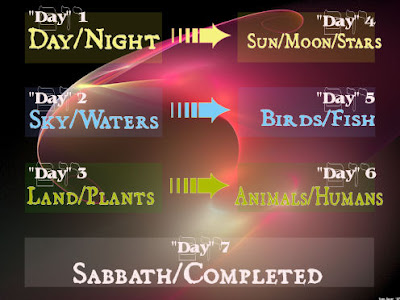I think dust and gas from a nearby supernova was dragged into orbit around our sun, the star that resulted from the action of the shockwave from that same supernova. Then the pieces accreted into planets over time, leaving the asteroid belt as an area where the strong gravitational field of Jupiter in particular made complete accretion of particles into a single planet impossible.
Wow. :chuckle:
So the order in Genesis is wrong. Did the little voices in the head of whichever Moses wrote this get a bit tangled up? Will you be writing to all the bible publishers and pointing out that actually Genesis cannot be right?
:squint:
No. And I won't be in a hurry to change the item that I described as in error either.
I gave clear and rational reasons for my explanation and for my choice in definition. You have given no reasons or explanations. You've hardly even started to explain what you think this passage even means.
The hosts of heaven do not reside on earth.
Who said they did? And who says they couldn't have?
No, it's not. But that's how Earth was designed - to be the abode of God (and man).
Black is not white. This is unbelievable, even for you. You just can't admit Walt could possibly be wrong can you?
Dr. Walter Brown might possibly be wrong. He even says so himself. He even describes situations in which he was wrong. Now, could you get over your fixation on that great scientist and engage in something like rational debate?
Except the firmament is called SKY!
It's called Heaven. And it is only "called" something because the name has meaning. And the meaning of that name most obviously is the abode of God.
Other than the fact that Shamayim means sky . . .
Heaven.
No it doesn't. Every time you say something is "perfectly reasonable", it is the opposite.
Reasons. You need to give reasons. :up:
I've given you the definition of the word.
And I've accepted the definition.
I've given you every possible reason and you still won't accept the truth.
You've given zero reasons. Let's list them:
[LIST=1]
[/LIST]
See? Zero.
You're determined to twist traditional Christian doctrine (the location of God and his Angels) now into fitting the Walt Brown model.
And you're determined to deny the possibility.
You are a true waste of time
Feel free to not talk to me. :wave2:
it's like trying to explain to you that water is wet
Water is wet.
and you keep insisting it is not in the face of the obvious.
Water is wet.
Genesis one quite clearly puts the firmament described in verses 6-8 on the surface of the Earth - in the midst of all the water that was on the surface of the Earth. God planned to live there so He called it His home - Heaven.
This analysis:
...is perfectly reasonable despite your insistence (and zero reasons) that it is not.
Have a nice day!


